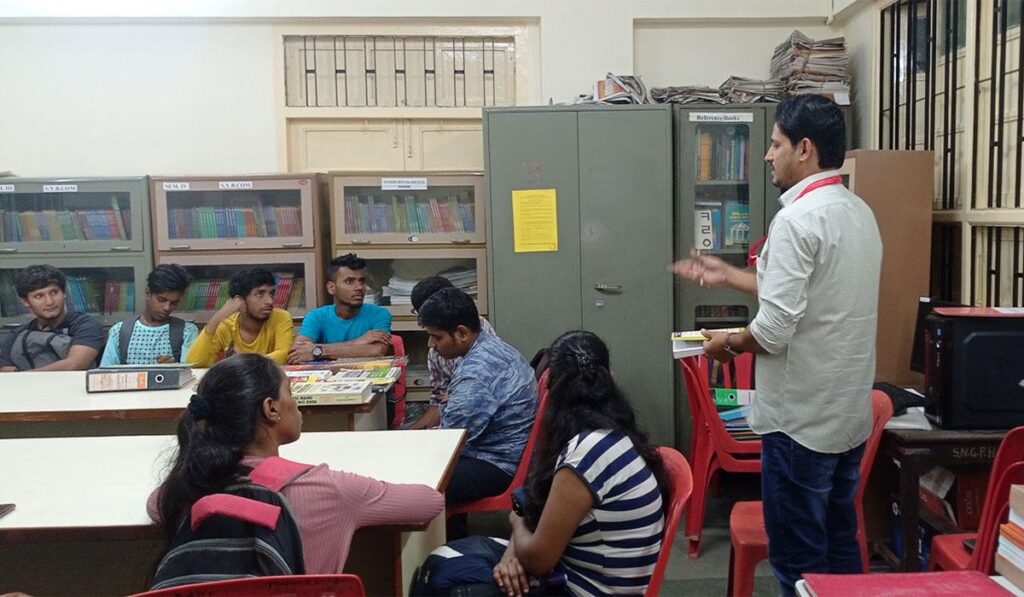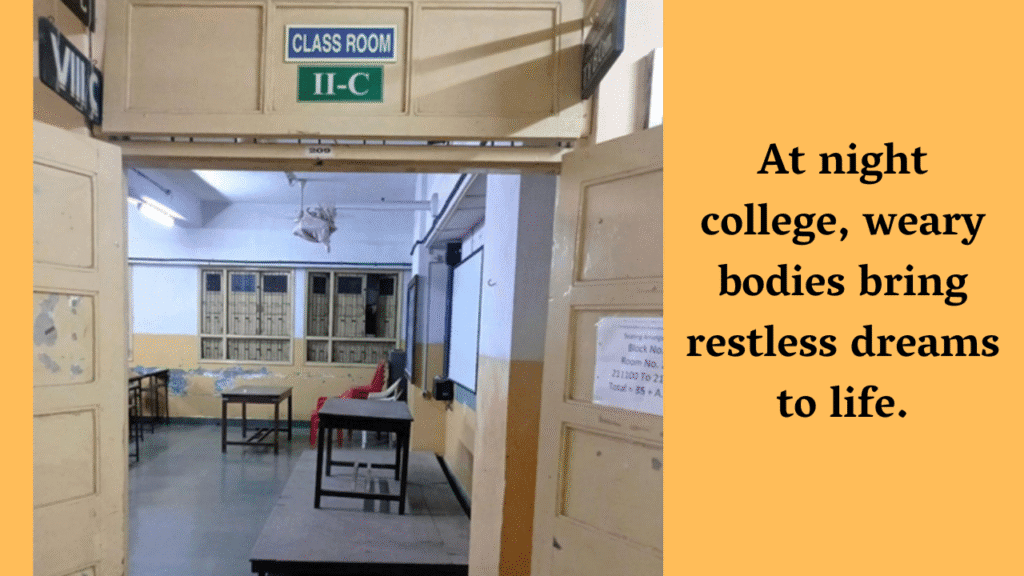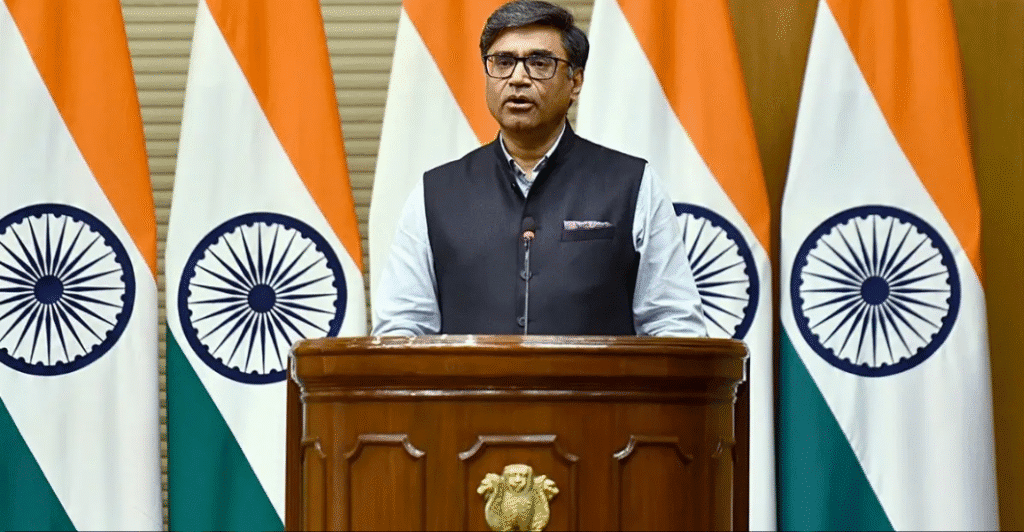Chatura Juwatkar and Prajakta Kadam | 20th August 2025
When most of the city begins to wind down after a long day, Mr. Sunil H. Ram is just stepping into his classroom at Advocate V. B. Deshpande College of Commerce in Badlapur. For 15 years, he has been teaching commerce subjects to first- and second-year B.Com students—not in the morning rush, but in the quiet hours of the evening, when the world outside moves a little slower and the students inside carry stories as heavy as their books.
A Career Shaped by Commitment
Sunil’s teaching journey began in the busy streets of Chembur, where he worked at a college in Govandi. The job was meant to be a stepping stone—an opportunity to gain experience—but it came with a gruelling commute. “From Badlapur to Govandi, then a ten-minute walk to campus—it was exhausting,” he recalls.
In May 2010, a vacancy opened closer to home. Sunil applied, attended the interview on May 11, and was selected by the college committee. Since then, Badlapur has been more than his home—it’s been his place of purpose.
Armed with an M.Com, a B.Ed, and the distinction of qualifying the UGC-NET exam three times, Sunil has dedicated his professional life to teaching commerce papers. But his real qualification, he says, is “patience and understanding—because night college students are not like others.”

Students Who Carry Two Worlds
Night college classrooms are different. The students are older, often juggling jobs, families, and studies all at once. “They come straight from offices, shops, or long shifts. They’re tired, but they’re determined. That determination is what inspires me,” Sunil says.
He remembers teaching students who managed to attend lectures after working 12-hour shifts, and mothers who brought their college notes to the playground so they could study while watching their children. “You can’t just be a teacher here—you have to be a motivator,” he says.
The Challenges After Dark
Night colleges across India operate with limited resources—outdated classrooms, minimal digital facilities, and scarce administrative support. “We manage with what we have,” Sunil admits, “but the students deserve better. Infrastructure, teaching aids, and career guidance could make a big difference.”
Unlike many of his peers who split their time between multiple institutions, Sunil focuses solely on his evening teaching. “I chose to dedicate myself to this work because these students need consistency,” he says. “When they see the same teacher committed to their progress, it builds trust.”

More Than a Syllabus
For Sunil, teaching at night isn’t just about completing chapters from a textbook. It’s about helping students believe in themselves. He recalls a former student who struggled with accounts but, through extra guidance and encouragement, went on to clear his exams and secure a job in finance. “Moments like that stay with you,” he says.
He also tries to integrate practical lessons—explaining how concepts in commerce relate to real-world scenarios his students face at work. “When they can connect theory to their own lives, the subject becomes less intimidating,” he explains.
Why Teachers Like Sunil Matter
Night schools and colleges rarely make headlines. Yet, for working adults, daily wage earners, and those returning to education after years, these institutions are often the only bridge to a better future.
Teachers like Sunil form the backbone of this bridge. They give up their evenings, adapt their methods to non-traditional learners, and persist despite limited recognition or financial rewards.
“If more people understood the dedication of night college students, they’d see why our work matters,” Sunil says. “We’re not just teaching subjects—we’re keeping dreams alive.”

His Message to the World
Sunil believes media storytelling has the power to change how night colleges are perceived. “If people saw the effort these students put in, society would respect night education more,” he says.
As the clock ticks past 10 PM and the last student leaves the classroom, Sunil gathers his notes, already thinking about tomorrow’s lecture. For him, the work doesn’t end when the bell rings—it continues in the encouragement he offers, the patience he extends, and the second chances he helps create.
For Mr. Sunil H. Ram, the evening isn’t an ending. It’s a beginning—one lecture at a time, beyond the bell.
Chatura Juwatkar and Prajakta Kadam are media educators who believe in amplifying stories of resilience, learning, and unsung changemakers through their work.



